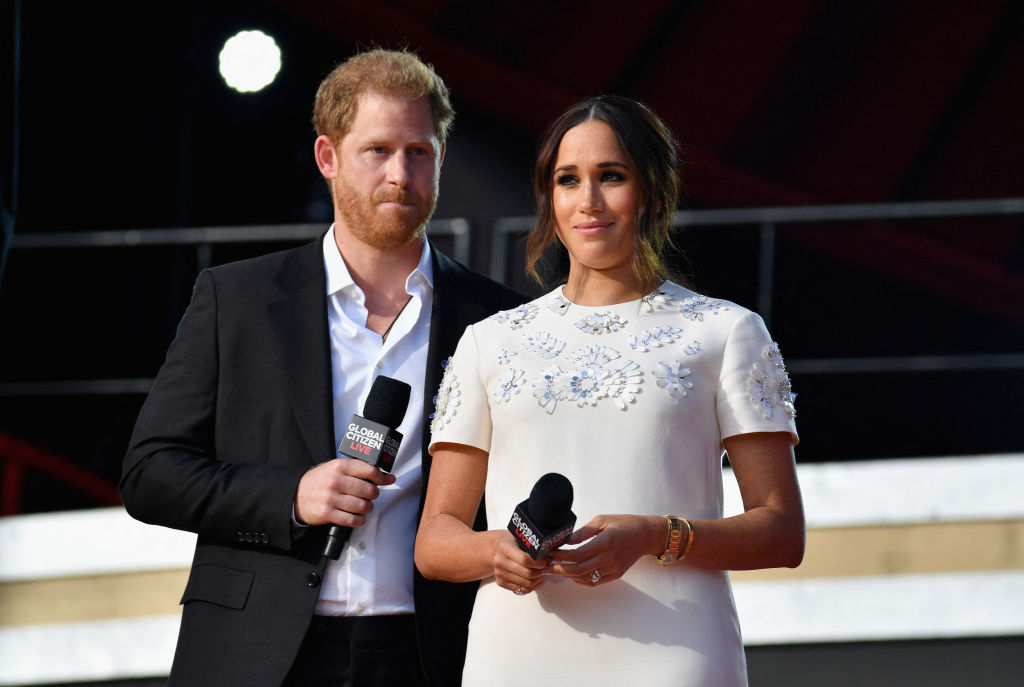Pharmaceutical companies might think it a bit rich being asked to waive the patents on their COVID vaccines by Harry and Meghan, a couple who have rejected the concept of public service in an attempt to monetize their royal status. But let’s overlook the charge of hypocrisy and ask whether there really is any substance to Harry and Meghan’s charge that ‘ultra-wealthy’ pharmaceutical companies are holding up the vaccination of the developing world by refusing to surrender their intellectual property.
It is certainly not true in the case of AstraZeneca, which has made its vaccine available at cost price. Not only that, it has licensed production to the Serum Institute of India, so that low and middle income countries can access vaccines produced at a lower cost base. While other manufacturers have been less forthcoming, the refusal to surrender patents hasn’t stopped wealthy countries donating 300 million doses of COVID vaccines to 142 countries, with a total of 1.3 billion due to be delivered by the end of this year. It might have been cheaper for taxpayers had the patents been waived in these cases, but as far as the recipients are concerned it makes little odds.
The idea that a few rich countries are hoarding vaccines while the rest of the world goes without doesn’t reflect reality. Overall, 44.5 percent of the world’s population has received at least one dose of a vaccine — a remarkable achievement given that it is less than a year since the first data was published from the phase three trial of any vaccine.
More people have been vaccinated in India alone — 631 million have received at least one dose — than live in the whole of Europe. That said, there is one part of the world where vaccination lags well behind: Africa. Across Africa as a whole, according to the Africa CDC, 6.14 percent of people have had at least one dose and 4.02 percent have had two doses. In bottom-of-the-heap Tanzania only 0.57 percent of the population has received a vaccine.
There is a very good reason why western countries wanted to prioritize vaccinating their own citizens: they have been among the worst-hit by COVID, while Africa has been mercifully lightly affected. It would be extraordinary if vaccination programs in the UK (1,993 deaths per million inhabitants to date) and the US (2,119) had been delayed so that vaccine doses could be diverted to Tanzania (0.8 deaths per million), Nigeria (13) or Kenya (92).
Naturally, vaccination has proceeded fastest in countries which have the greatest emergency, just as the fight against Ebola is concentrated in West Africa rather than, say, Connecticut. Clearly, both from a humanitarian perspective and from self-interest, it is in the interests of western countries for vaccination to now proceed in Africa, but are patents really to blame?
Having vaccines is only one half of the challenge of vaccinating a population — the other is the physical process of getting it into people’s arms. It took over six months to offer everyone in Britain a vaccine. If that is what it takes a developed country, it is hardly surprising it takes rather longer in sub-Saharan African countries where the healthcare infrastructure is less developed, not to mention the transport system.
In her speech at the weekend Meghan made the emotive charge: ‘Just think about the millions of vaccine that have been discarded this year. That’s like throwing away life vests when those around you are drowning.’ Some doses of vaccines have indeed had to be thrown away in western countries once they have gone out of date, but that is a problem which has also afflicted developing countries as they try to roll out the vaccines they have been given. The Democratic Republic of the Congo had to throw away 1.7 million doses of the AstraZeneca vaccine. South Africa received a million doses of the AstraZeneca vaccine but decided not to use them after a study in that country suggested it had poor efficacy against the strain of SARS-CoV-2 in circulation there.
Moreover, many African countries have priorities other than COVID-19. The OECD notes that the pandemic has led to a backlog of 80 million other vaccinations, such as measles, polio and diphtheria — diseases which, in contrast to COVID, especially afflict children. African nations have also had to overcome considerable public resistance and apathy to COVID and vaccines. According to a study by the African CDC, 41 percent of people in the Democratic Republic of the Congo say they won’t have a COVID vaccine, while 54 percent of Nigerians strongly agree that the threat of COVID-19 has been exaggerated. This is not entirely surprising, given the low numbers of cases reported in many of these countries. Across 15 countries, only one in five people personally know anyone who has tested positive for the disease.
There is no point in delivering vaccines faster than they can be rolled out — to flood Africa with vaccine doses now would mean even more having to be thrown away. Indeed, much of the international effort currently revolves around ancillary equipment as much as vaccines themselves. COVAX recently announced the donation of 350 ultra low-temperature freezer units so that vaccines won’t go to waste. Maybe Harry and Meghan should start demanding that fridge manufacturers surrender their patents, too.
It might just be added there is a good reason why patents on vaccines shouldn’t simply be surrendered: if we want money to be invested in their development in future it is vital that investors can be offered a return – otherwise money will be diverted into the development of less useful products such as wrinkle creams.
Not that any of this will rub off on Harry and Meghan. In their vacuous world of celebrity do-gooding, all that matters is that you pick a popular bogeyman — Big Pharma — and score your virtue points by accusing it of being mean-minded. The facts count for little.
This article was originally published on The Spectator’s UK website.


















